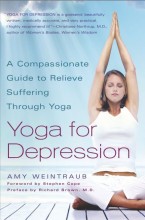
“Wisdom springs from Yoga [practice]; Yoga derives from wisdom. For him who is dedicated to Yoga and wisdom, nothing is unattainable.”
-Anonymous, “Song of the Divine,” Kurma-Purana(2)
One way of remembering your wholeness is to approach Yoga through your intellect. Yoga need not be a mindless pursuit. While you may find that some individual practitioners have an anti-intellectual bias, Yoga truly honors the mind. Having come from a Yoga training in Gujarat, India where I was steeped in practice, practice, practice, I remember the thrill I had upon first entering the Narayana Gurukula, a small ashram/school on a mountain in Ooty, the hill station town in the Indian state of Tamil Nadu. In the round, windowed reception room, the bookshelves were filled with literature from around the world. Not only were the great sages of Indian philosophy represented, but Western philosophers, poets, novelists and scientists had their shelf-space, too. Finally, I thought, I don’t have to transcend the mind to find union in Yoga. In that reception room, while waiting to speak with Nitya Chaitanya Yati, the renowned Vedanta scholar with whom I’d come to study, I found total permission to use my mind as a vehicle for union with the divine.
The ancient Yogis acknowledged the differences in our constitutions. Some of us enjoy the pursuit of knowledge—we read, we discuss, we even debate, and we would not feel comfortable on a Yogic path if we believed we were supposed to abandon our critical-thinking mind in order to experience the union that is Yoga. If you love learning, perhaps the Jnana path is for you. You may be drawn to study more about Yoga philosophy or to learn Sanskrit. This is the path of the Jnana yogi. In classical terms, the jnana yogi is one who finds liberation through the doorway of the intellect. Jnana Yoga is the Yoga of pure discrimination. It transcends the intellect through the intellect. If you find inspiration in literature, then you may find that your mood lifts simply from reading about the principles of Yoga.
Many students of Yoga finish their practice on the mat with a reading from an ancient text that inspires them, like the great sage Shankara’s beautiful Crest Jewel of Discrimination: Timeless Teachings on Nonduality, or the Bhagavad Gita or a book about practice like the Yoga Sutras or the Hatha Yoga Pradipika.
Here’s a passage I love from the Crest Jewel of Discrimination:
The Atman is supreme, eternal, indivisible, pure consciousness, one without a second. It is the witness of the mind, intellect and other faculties. It is distinct from the gross and the subtle. It is the real I. It is the inner Being, the uttermost, everlasting joy…
…“You”, “I”, “this”—such ideas of separateness originate in the impurity of the mind. But when the vision of the Atman—the supreme, the absolute, the one without a second—shines forth in samadhi, then all sense of separateness vanishes, because the Reality has been firmly apprehended.
Others may read from a contemporary book about Yoga philosophy and practice, like Stephen Cope’s Yoga and the Quest for the True Self. Still others take inspiration from contemporary poetry by Mary Oliver or David Whyte or Jane Hirshfield. When I finish my own practice, I sometimes read from one of these poets or from the devotional poets like Rumi and Mirabai and Mechtild of Magdeburg or from the wonderful translation by Anita Barrows and Joanna Macy of Rilke called Rilke’s Book of Hours: Love Poems to God. Here’s one of my favorite Rilke poems that inspires a deeper opening and a sense of flow from my practice into my writing:
Ich glaube an Alles noch nie Gesagte
I believe in all that has never yet been spoken.
I want to free what waits within me
so that what no one has dared wish for
may once again spring clear
without my contriving.
If this is arrogant, God, forgive me,
but this is what I need to say.
May what I do flow from me like a river,
no forcing and no holding back,
the way it is with children.
Then in these swelling and ebbing currents,
these deepening tides moving out, returning,
I will sing you as no one ever has,
streaming through widening channels
into the open sea.(4)
You may be drawn to read a portion from your own religious tradition—the weekly Torah or Bible portion or relevant passage from the Koran. Such reading brings you back from your practice into the world of the mind through the doorway of faith.
 To find a LifeForce Yoga Practitioner in your area, trained by Amy Weintraub and the LifeForce Yoga faculty, click here.
To find a LifeForce Yoga Practitioner in your area, trained by Amy Weintraub and the LifeForce Yoga faculty, click here.
Excerpted from Yoga for Depression (Broadway Books)